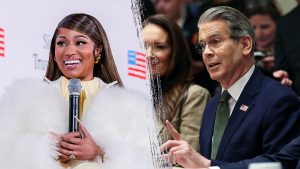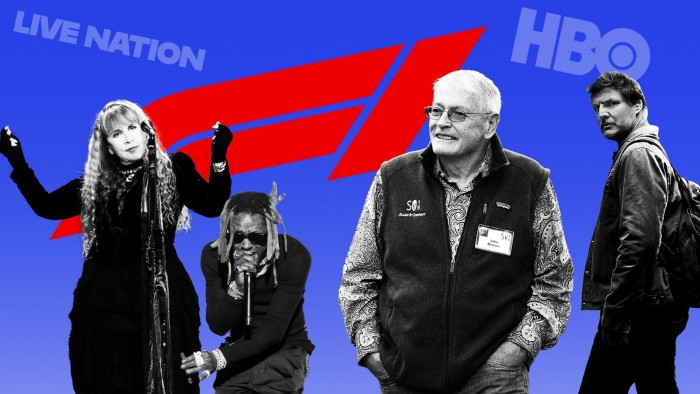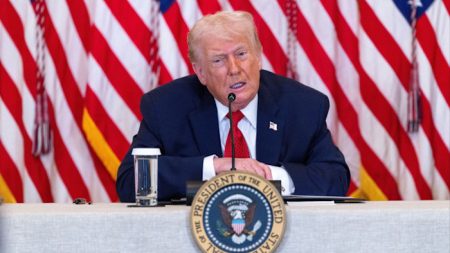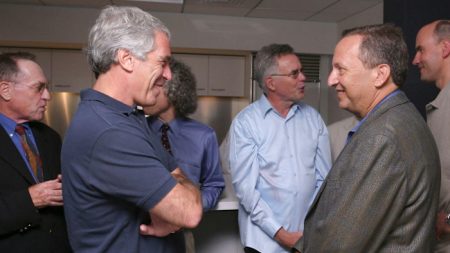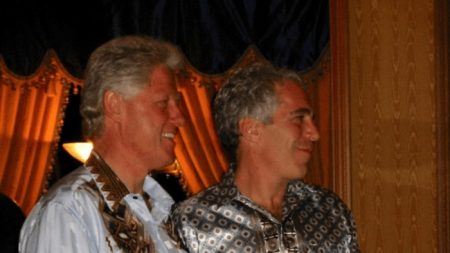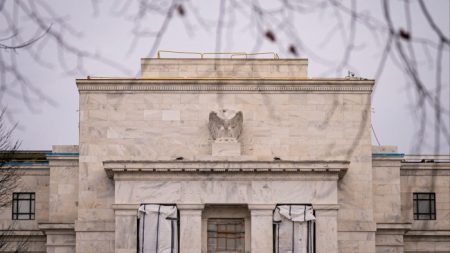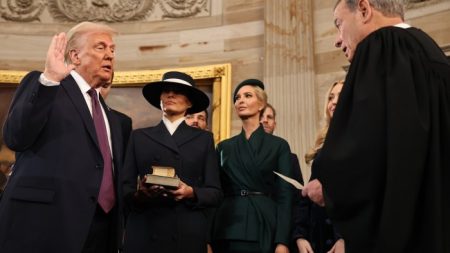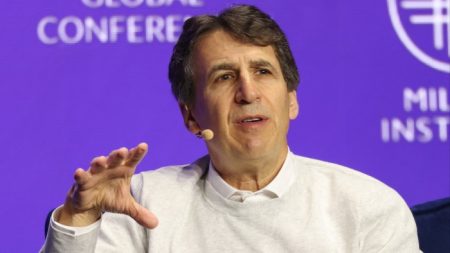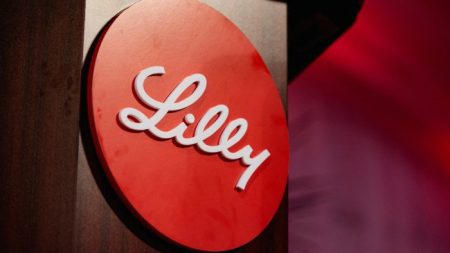John Malone held talks last summer with Rupert Murdoch over merging Warner Bros Discovery with Fox, with the US “cable cowboy” highlighting the difficulty of one company owning both Warner’s CNN and Fox News as one reason the talks did not progress.
Malone, Warner’s chair emeritus and an adviser to the company, revealed in an interview with the Financial Times that he and Murdoch, his fellow chair emeritus at Fox, had “serious discussions about merging Fox into Time Warner, into Discovery” at the Sun Valley conference in July 2024.
The deal “probably would have happened if we thought that Fox News and CNN could live under one umbrella,” Malone said.
In his autobiography, set to be published next week, Malone charts the formation of his sprawling business empire — from the creation of a cable giant at TCI and helping launch pay-TV in the US, to his stakes today in Warner, and in Formula 1 and Live Nation via Liberty Media.
After more than 50 years at the vanguard of dealmaking, the 84-year-old is still exploring deals for various parts of his empire, the proceeds of which he said will underpin plans to give most of his $10bn wealth to philanthropic causes after he and his wife pass away.
With little sign that his renowned “urge to merge” — as he puts it in his book — is fading, Malone signalled an openness to a future deal involving Formula 1, owned by Liberty Media.
As for Fox Broadcasting, separate to the news division, Malone said “a deal would potentially give Warner’s US sports position a huge strengthening” if Murdoch, whom he counts as a friend, were open to selling.
Other people close to the discussion last summer said Warner chief executive David Zaslav and News Corp chair Lachlan Murdoch were also present. Fox insiders downplayed the significance, saying a possible deal was raised but not pursued.
Malone supports a proposed split of Warner, in which he owns a 0.7 per cent stake, into two publicly traded companies: a Warner Bros focused on its studios, film, and streaming, and a Discovery Global holding its traditional cable networks.
The deal would unwind a merger that has led to significant shareholder losses. The combined company’s shares have halved, wiping about $30bn off its market capitalisation, as Americans ditch cable TV in favour of streaming.

“Because it was a deal between two heavily regulated companies, there was no real opportunity to do due diligence,” Malone said.
“When we acquired Warner . . . we didn’t see the deterioration. We knew it was a transformation, but we didn’t know that we would start in [such a] hole . . . have I taken a personal financial beating up til now? I can afford it, I guess.”
With HBO’s best shows being brought back to its own streaming service, HBO Max, Malone sees a brighter future for the separated companies, saying Zaslav will have a “clean shot” with a streaming company boasting the “best studio on the planet [and] the biggest library on the planet”.
“Am I glad that we did it? Maybe in the end, it will work out,” Malone said of the merger.
Malone, who retains a seat at the top table of the rapidly changing media industry, is predicting a fresh wave of mergers. As well as big tech swooping on the traditional US media groups he had a hand in building, Malone expects consolidation among “sub-scale” streaming services, especially those owned by legacy media groups.
While he believes “exclusive, high-quality entertainment content” gives legacy media a valuable edge, he said big tech will increasingly “outbid everybody for sports . . . we know that it moves customers [and] it sells advertising”.

The scale of the threat from big tech means consolidation between legacy media was also conceivable, Malone added, pointing to the “possibility of consolidation of a Disney and a Warner, or a Disney and a Paramount or an NBC Universal with a Warner”.
A restructuring of Liberty Media — in which Malone is chair and the shareholder with the most voting rights — means its 30 per cent stake in Live Nation will be separated into a newly formed company this autumn.
The paperwork for the split has been filed, Malone said, which would leave Liberty Media holding motorsports Formula 1, MotoGP, and various smaller private assets. This follows several other spin-offs, including the Atlanta Braves baseball team and SiriusXM, a satellite radio operator.
The simplified structure would make it easier for Malone to pursue a deal involving Formula 1, for which Liberty has already received approaches.
TKO, the group behind Ultimate Fighting Championship and World Wrestling Entertainment that is run by Ari Emanuel, has been speculated as a potential partner. Malone said that “obviously Ari would love to have that discussion” and added that a combination of this sort could create “a lot of synergies”.
“Everything will be spun off, and then let’s see what new things we can create,” Malone said, adding that GCI — an Alaska-based telecoms company in which he will retain a shareholding — “perhaps could be a vehicle to do something with”.

Malone was instrumental in creating modern broadband infrastructure. He rolled up scores of networks and pushed for upgrades in the 1980s so that they could carry hundreds of cable TV channels, and then upgraded them again for high-speed internet, which ultimately paved the way for Netflix and others to upend the media industry.
Now, he is reorganising some broadband assets by merging holding company Liberty Broadband, in which he is a shareholder, with Charter Communications. The deal is scheduled to complete when Charter finalises its own $34.5bn merger with Cox Communications.
The listed telecoms holding group, Liberty Global, which owns stakes in operators including Virgin Media O2 in the UK, is also slimming down and spinning off assets.
Despite his close bonds with contemporaries such as Murdoch, Ted Turner and Barry Diller, Malone describes in his book, Born to be Wired, how he sometimes found it difficult forming personal relationships over the course of his swashbuckling 50-year career.
Parts of the book read like a “thank you” letter to those who advised and mentored him, notably Bob Magness, who brought him in to rescue TCI, his US cable company, in the 1970s. Malone eventually sold TCI to AT&T for $48bn in 1999. He also seeks to credit the managers under him who had a “helluva” job making his ideas work: “I could come up with ideas faster than anybody could execute.”
While Malone misses the “instant gratification” of making decisions as a chief executive, he says he is happy not to have to deal with an “army of lawyers and regulators” anymore.

Malone is watching the Murdoch family’s succession battle closely. Rupert’s attempt to change his family trust to give control to his eldest son, Lachlan, was blocked by a court in Nevada in December.
He says it would be “very disruptive” if Rupert’s other son, James, ended up controlling Fox News. “I know Rupert would hate the thought,” he said, pointing to a threat to the network’s centre-right political position under the younger Murdoch son.
Malone will not be handing his remaining businesses to his children. Instead, he plans to give most of his $10bn wealth, roughly half of which is made up of real estate, to charitable causes, such as medical research, education and preserving some of his vast land holdings as public open space.
However, as he rearranges his sprawling empire, some assets he will not countenance selling. One is the Atlanta Braves, in which he says he would never sell his stake as long as his friend and Braves fan Ted Turner is alive. “It’s not about money on those kind of things. This is about relationships and history.”
Another asset with protected status is Malone’s Castlemartin Estate in County Kildare, Ireland, which includes a stud farm and restored medieval church.
When Mark Zuckerberg, who built his social media empire off the back of the high-speed broadband networks Malone pushed to create, offered to buy the estate earlier this year, Malone gave him the cold shoulder.
“I told him no, sorry Mark,” smiles Malone. “He said: “I hear it’s the prettiest place in Ireland”. And I said: “Maybe in the world, but it ain’t for sale.”
Read the full article here


